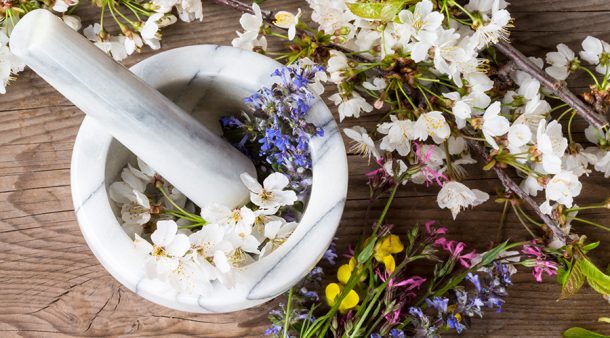
Osteoporosis and Natural Support for Bone Health
Overview
Osteoporosis is a condition marked by decreased bone mass and an increased risk of fractures, affecting 28 million Americans and over 75 million people worldwide. Annually, it leads to more than 1 million fractures in the U.S. alone, and women over 70 are particularly at risk, with over 50% affected by some form of osteoporosis. Although it is a significant health issue, osteoporosis is largely preventable through lifestyle, dietary choices, and nutritional support.
Common Misconceptions About Osteoporosis
- “I’m too young to get osteoporosis.” Bone density starts declining after the mid-30s, with a loss of 1-2% per year. Early preventive measures, such as incorporating adequate calcium and magnesium supplementation, are key to maintaining bone health as you age.
- “I drink lots of milk to build strong bones.” While milk contains calcium, its phosphoric acid content can leach calcium from the bones. Leafy greens and animal protein are more effective sources of calcium.
- “Only women get osteoporosis.” While it is more common in postmenopausal women, 1/3 of elderly men are also affected. Men can benefit from supplements like vitamin K, which aids in bone formation, and vitamin B-complex to reduce bone-weakening homocysteine levels.
- “Taking calcium supplements alone will prevent it.” Calcium is important, but bone health also depends on other nutrients like magnesium, vitamin D, and trace minerals, along with exercise and lifestyle modifications.
- “Osteoporosis is caused by a lack of pharmaceutical drugs.” Medications may help but are not the root solution. Lifestyle and dietary changes, supported by supplements such as isoflavones and ipriflavone, play a crucial role in bone health.
Chinese Medicine, Chakras, and Emotions
In Traditional Chinese Medicine (TCM), osteoporosis relates to a deficiency in the Kidney meridian, which governs bones and the production of marrow. This meridian is also associated with fear and insecurity. When Kidney Qi is weakened, it affects bone strength and resilience. Emotional stressors like fear and anxiety can exacerbate this deficiency, leading to weakened bones. Balancing Kidney Qi through acupuncture, herbal medicine, and emotional work can support bone health.
From a chakra perspective, osteoporosis is connected to the Root Chakra (Muladhara), which is linked to feelings of safety, security, and grounding. Imbalance in this chakra can result in physical instability, including bone weakness. Practices such as grounding exercises, yoga, and meditation can help strengthen this chakra, promoting better bone health. Incorporating foods rich in magnesium, such as almonds and leafy greens, can support both physical and energetic balance.
Types of Osteoporosis
There are two primary types of osteoporosis:
- Type 1 (Postmenopausal Osteoporosis): Mainly affects women and occurs after menopause due to decreased estrogen levels, which play a crucial role in maintaining bone density. For postmenopausal women, natural progesterone can help maintain bone density by activating osteoblasts, cells that aid in bone formation.
- Type 2 (Age-Related Osteoporosis): Affects both men and women over the age of 70 due to a natural decline in bone density and hormonal changes. Supplements like vitamin D3 and magnesium are particularly beneficial for this group, supporting calcium absorption and bone matrix quality.
Goals of Osteoporosis Management
- Prevent fractures: Strengthen bones to reduce fracture risks through diet, lifestyle, and supplementation, such as vitamin K to aid bone remodeling and repair.
- Maintain or increase bone density: Use key nutrients like calcium, magnesium, and trace minerals to support bone density.
- Prevent complications: Address weakened bone density with the help of vitamins and minerals to avoid further health issues.
- Improve quality of life: Ensure mobility and reduce pain through exercises and supplements like glucosamine and chondroitin for connective tissue health.
- Decrease mortality and morbidity: By promoting overall health and well-being through a holistic approach.
Diet and Prevention
Diet plays a vital role in osteoporosis prevention and management. Here are some key dietary recommendations:
1. Alkaline Diet and Nutrient-Rich Foods: A diet rich in alkalizing foods like vegetables, fruits, lentils, nuts, seeds, and spices helps maintain an optimal pH balance, crucial for bone health. Green foods like kale, broccoli, Brussels sprouts, and beef are excellent sources of calcium. Include foods high in magnesium, such as seeds and whole grains, to enhance calcium metabolism and strengthen bones. Limit intake of acidic foods such as refined sugars, caffeine, alcohol, and processed meats to prevent calcium loss.
2. Sources of Calcium, Magnesium, and Vitamin D: Kale, collard greens, turnips, and figs are high in calcium. Vitamin D helps the body absorb calcium effectively. Sunlight is a natural source of vitamin D, but supplementation may be necessary, especially in older adults. Taking calcium citrate with vitamin D can reduce fracture risk by 49%. Magnesium supplements support the body’s use of calcium, helping prevent deficiencies that can lead to brittle bones. Include foods like almonds, legumes, and leafy greens rich in magnesium in your diet.
3. Animal Protein and Processed Foods: Excessive animal protein can increase calcium excretion. Avoid cow’s milk, which is acidic and may contribute to calcium leaching from bones. Isoflavones, found in soy, can support bone metabolism and reduce bone mineral loss.
4. Trace Minerals and Vitamin K: Trace minerals like zinc, copper, manganese, and boron are essential for maintaining bone health. These minerals support various processes, including collagen formation and calcium metabolism. Incorporate foods such as seeds, nuts, and leafy greens, and consider trace mineral supplements for optimal bone support. Vitamin K, found in green leafy vegetables, aids in synthesizing bone proteins and reduces calcium loss. Dosage: As directed on the supplement label.
Exercise and Bone Health
Weight-bearing exercises, such as walking, jogging, and resistance training, are essential for building and maintaining bone density. Regular physical activity, three times a week, can help prevent bone loss and even increase bone mass, regardless of age. Practicing yoga and tai chi not only strengthens bones but also supports emotional balance by aligning the body’s energy centers, including the Root Chakra.
Hormonal Balance and Natural Estrogen Therapy
1. Bio-Identical Hormones and Phytoestrogens: Bio-identical hormone replacement therapy (BHRT) using natural compounds may offer a safer alternative to synthetic hormones for managing osteoporosis in postmenopausal women. Phytoestrogens, found in soy, red clover, and black cohosh, mimic the effects of estrogen on bone health and can be incorporated into the diet. Combining these with supplements like boron can aid in maintaining bone density by decreasing calcium excretion.
2. Natural Progesterone: Progesterone plays a role in building new bone tissue by activating osteoblasts. Topical progesterone cream can help balance hormone levels and support bone formation. According to hormone specialist Dr. John Lee, progesterone effectively reverses bone loss in postmenopausal women without the side effects of synthetic hormone treatments.
Supporting Bone Health with Key Nutrients
- Vitamin B Complex: B vitamins, particularly B6, B12, and folic acid, are crucial for bone health and help reduce bone-weakening homocysteine levels. Low levels of vitamin B12 have been linked to rapid hip bone loss. Include a B-complex supplement in your routine to support bone strength and overall metabolic function.
- Vitamin C and Antioxidants: Vitamin C supports collagen formation, essential for maintaining bone structure. It also enhances calcium absorption by creating an acidic environment in the stomach. Antioxidants like vitamin A and E protect bones from oxidative stress. Foods high in vitamin C, such as citrus fruits, kiwis, and peppers, should be included in your diet.
- Silicon and Strontium: Silicon supports connective tissue matrix, strengthening bones. Strontium increases calcium retention, promoting a healthy skeletal system. Including these minerals in your regimen can enhance bone density and reduce fracture risk.
- Glucosamine and Chondroitin: These nutrients support the development of bone and connective tissues, aiding in joint health and mobility. They can be especially beneficial for those experiencing bone and joint pain due to osteoporosis.
Risks and Causes of Osteoporosis
Several factors contribute to the risk of developing osteoporosis, including:
- Family history of osteoporosis
- Lack of exercise and physical activity
- Long-term use of certain medications like steroids and NSAIDs
- Hormonal imbalances, including menopause and thyroid dysfunction
- Poor diet, high


